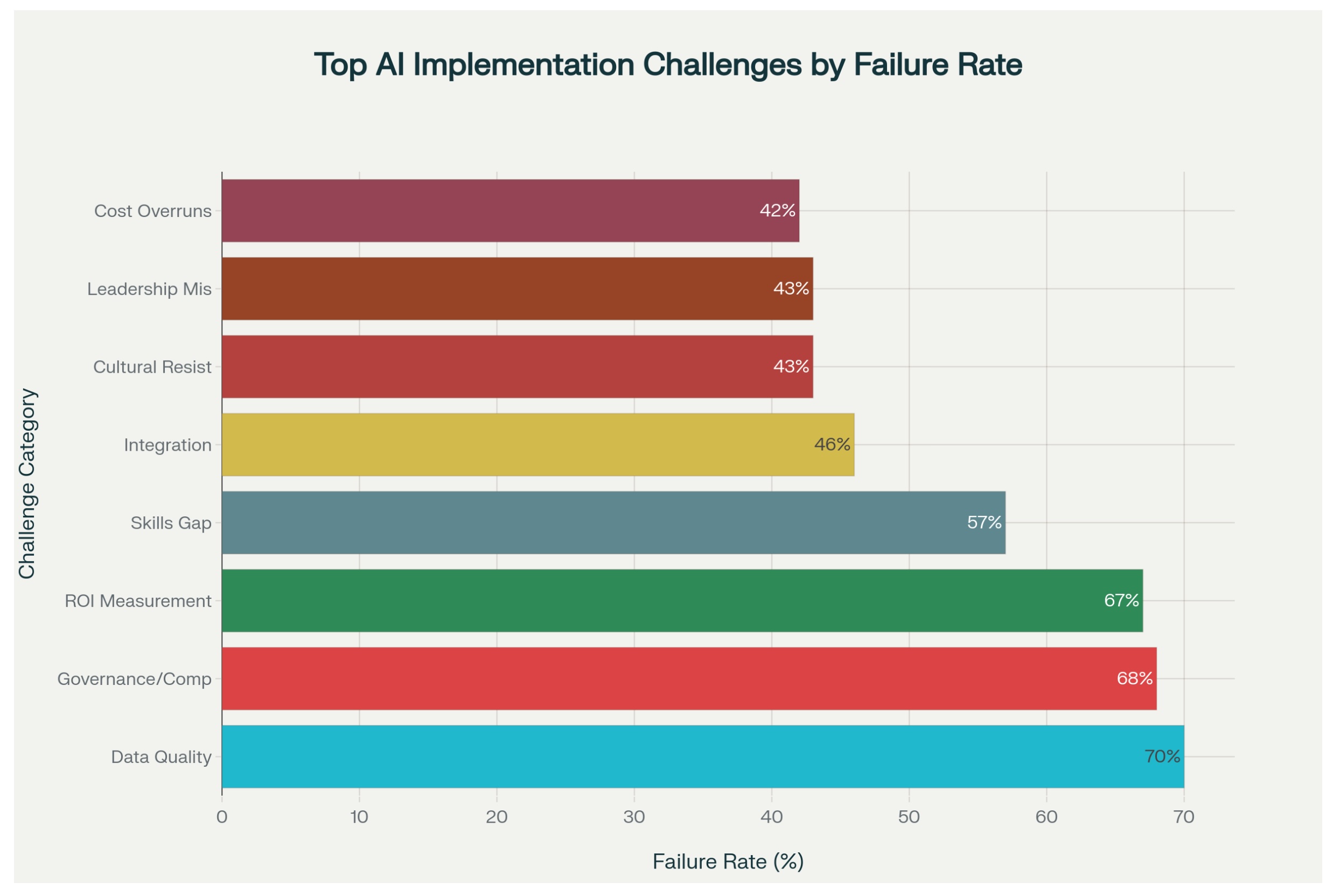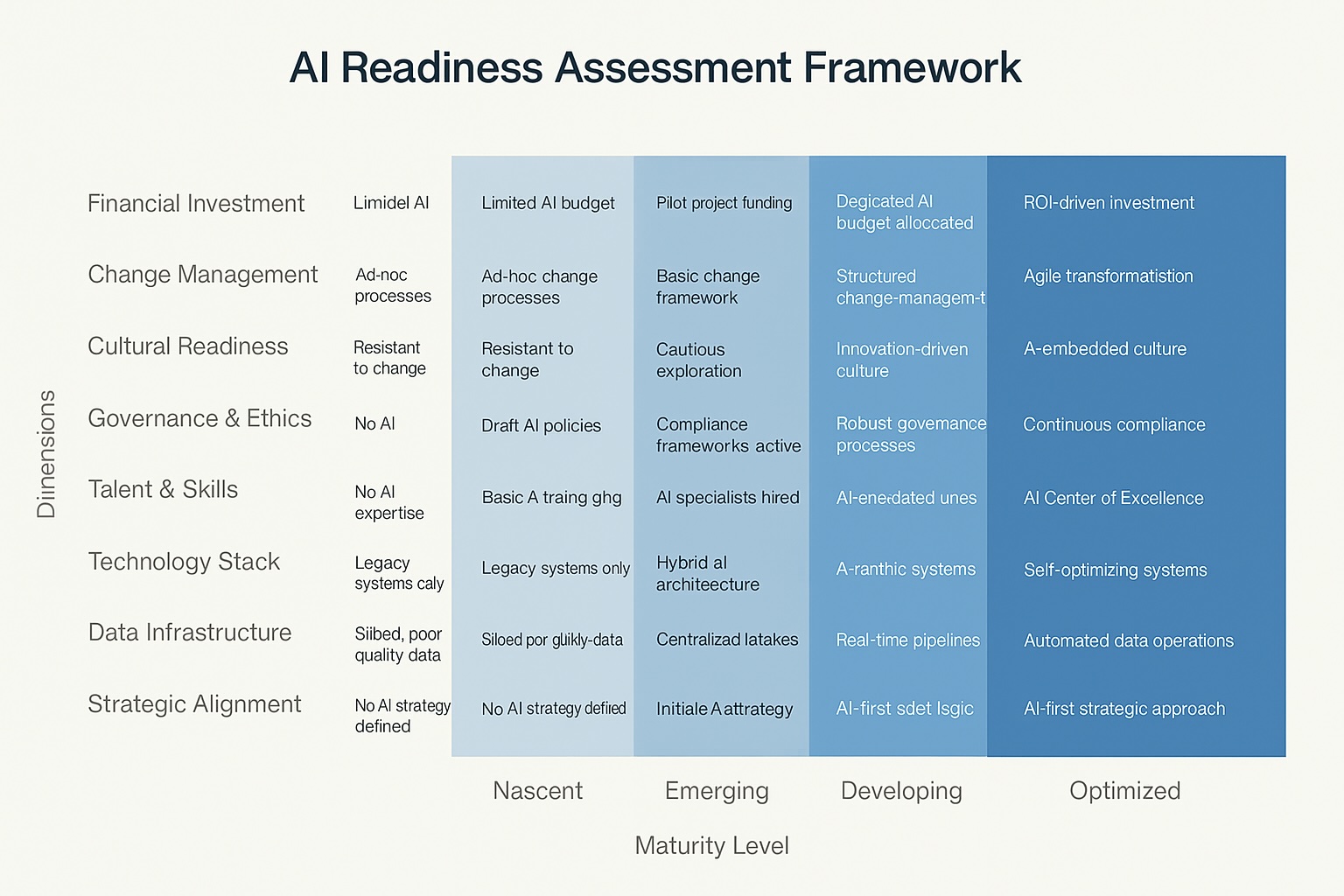
Why Your AI Strategy Is Failing (Hint: It's Not the Technology)
You've poured money into AI. You've got the platforms, the tools, and a team of smart people trying to make it all work. Yet, the game-changing results you were promised are nowhere in sight. Sound familiar?
While a whopping 91% of companies are adopting AI, a tiny fraction—less than 25%—are actually getting meaningful results. That massive gap between trying and succeeding isn't about faulty algorithms or slow servers.
It's about your culture.
I've seen this story play out in dozens of boardrooms. Leaders are chasing the technology but ignoring the human foundation required to make it work. They treat AI as a plug-and-play solution, but it's a profound organizational shift. If your AI initiatives are stalling, it's time to stop looking at your tech stack and start looking in the mirror.
Let's get one thing straight: AI project failures are primarily organizational, not technical. When you dig into the data from over a thousand enterprise AI projects, a clear pattern emerges. The roadblocks aren't lines of code; they're human problems hiding in plain sight.
Here's where things really go off the rails:

These aren't separate issues. They are all symptoms of a culture that isn't "AI-ready." You can have the best tech in the world, but if your organization isn't prepared to use it, you're accelerating your ability to fail.
Researchers at MIT have identified four stages of AI readiness, and the findings are… uncomfortable.
What do those top 7% know that everyone else doesn't? They figured out that being "AI Future Ready" has almost nothing to do with the future. It's about building the right foundation right now.

Organizations that reach this advanced stage see 3x better ROI, get to production 60% faster, and have 80% fewer compliance issues. They're not just winning; they're lapping the competition.
So if buying more tech isn't the answer, what is? You have to stop managing technology and start leading people.
This is non-negotiable.
100% of organizations at advanced AI maturity stages have leadership that clearly and consistently communicates AI's importance.
One hundred percent.
If AI is just another line item on a budget slide, you've already lost. Your executive team needs to be visibly committed, constantly educated, and relentlessly focused on the long-term investment. If they treat it like a pet project, so will everyone else.
Do you want to know the difference between a successful AI rollout and a disastrous one?
Think about that. Forcing AI onto your teams is almost guaranteed to fail. The smart move is to identify your internal champions—the curious, the tinkerers, the problem-solvers—and give them the training, safety, and support to experiment. These are the people who will find the real-world use cases and show everyone else what's possible.
Your job isn't to hand down orders. It's to create an environment where good ideas can rise from anywhere.
Most companies approach AI governance with a sense of fear. They create rigid rules and complex approval processes that slow everything to a crawl. But the most mature organizations do the opposite.
They build governance-first frameworks that balance innovation with risk management.
Think of it like building a highway. You don't just let everyone drive wherever they want. You put up guardrails, paint clear lines, and set speed limits. The structure doesn't slow people down; it allows them to move faster and more safely. A proper governance framework does the same, and it's why leading companies report 80% fewer compliance issues.
This isn't an overnight fix. It's a deliberate, strategic shift. Based on the companies that are actually succeeding, the path forward is clear.
In a world where almost everyone is adopting AI, your culture is the only sustainable competitive advantage. It's the engine that will drive fundamental transformation long after the buzzwords fade.
The question isn't whether AI will disrupt your industry. The question is whether your organization will be ready to lead that transformation—or be disrupted by a competitor who is.
More insights from the best-practices category
Get the latest articles on AI automation, industry trends, and practical implementation strategies delivered to your inbox.
Discover how Xomatic's custom AI solutions can help your organization achieve similar results. Our team of experts is ready to help you implement the automation strategies discussed in this article.
Schedule a Consultation